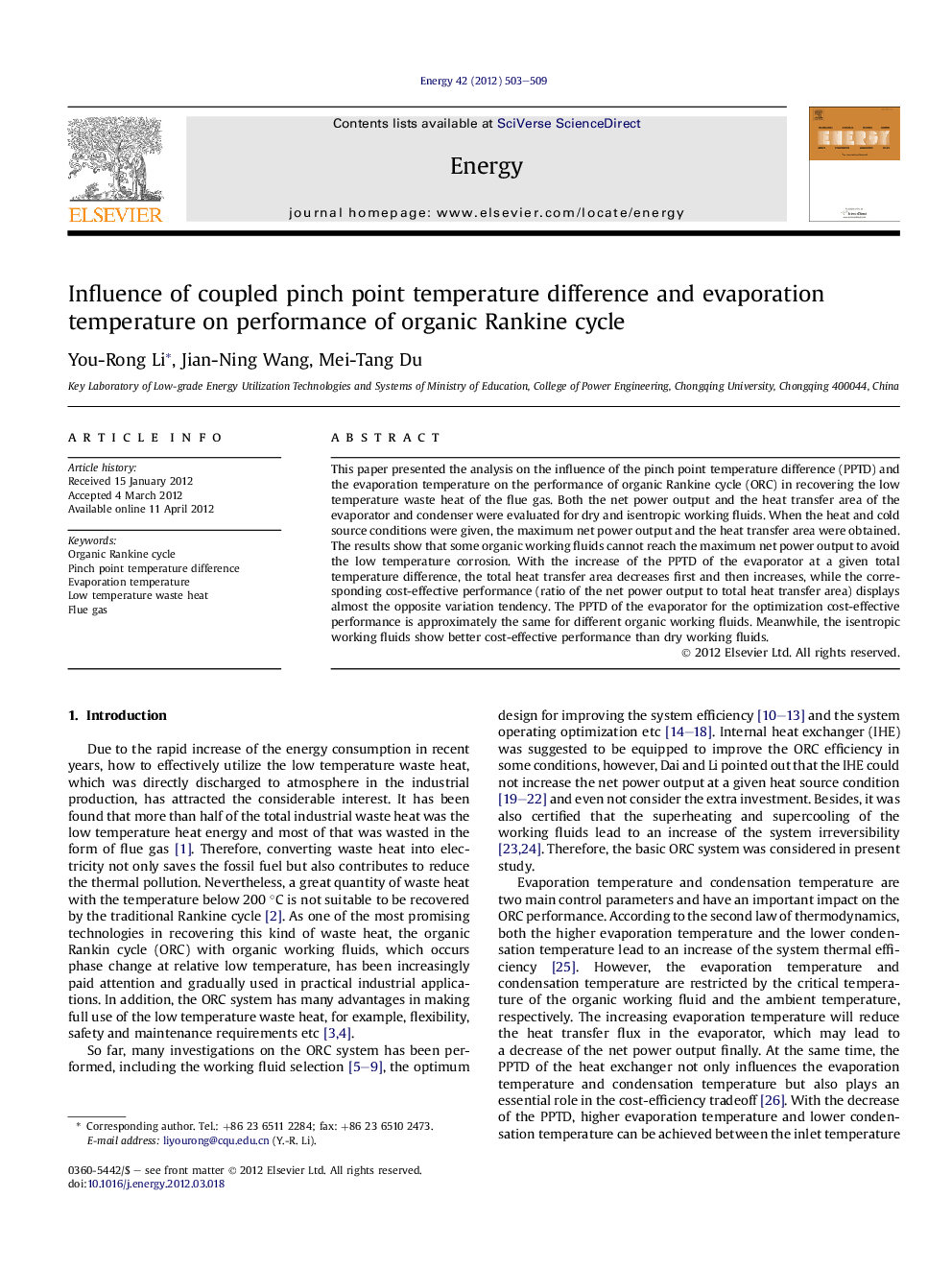| Article ID | Journal | Published Year | Pages | File Type |
|---|---|---|---|---|
| 1733845 | Energy | 2012 | 7 Pages |
This paper presented the analysis on the influence of the pinch point temperature difference (PPTD) and the evaporation temperature on the performance of organic Rankine cycle (ORC) in recovering the low temperature waste heat of the flue gas. Both the net power output and the heat transfer area of the evaporator and condenser were evaluated for dry and isentropic working fluids. When the heat and cold source conditions were given, the maximum net power output and the heat transfer area were obtained. The results show that some organic working fluids cannot reach the maximum net power output to avoid the low temperature corrosion. With the increase of the PPTD of the evaporator at a given total temperature difference, the total heat transfer area decreases first and then increases, while the corresponding cost-effective performance (ratio of the net power output to total heat transfer area) displays almost the opposite variation tendency. The PPTD of the evaporator for the optimization cost-effective performance is approximately the same for different organic working fluids. Meanwhile, the isentropic working fluids show better cost-effective performance than dry working fluids.
► Variation law of the heat transfer area with the pinch point temperature difference in evaporator and condenser. ► Optimization of performance of the ORC system based on pinch point temperature difference and evaporation temperature. ► Evaluation for the different organic working fluids at a given external condition.
